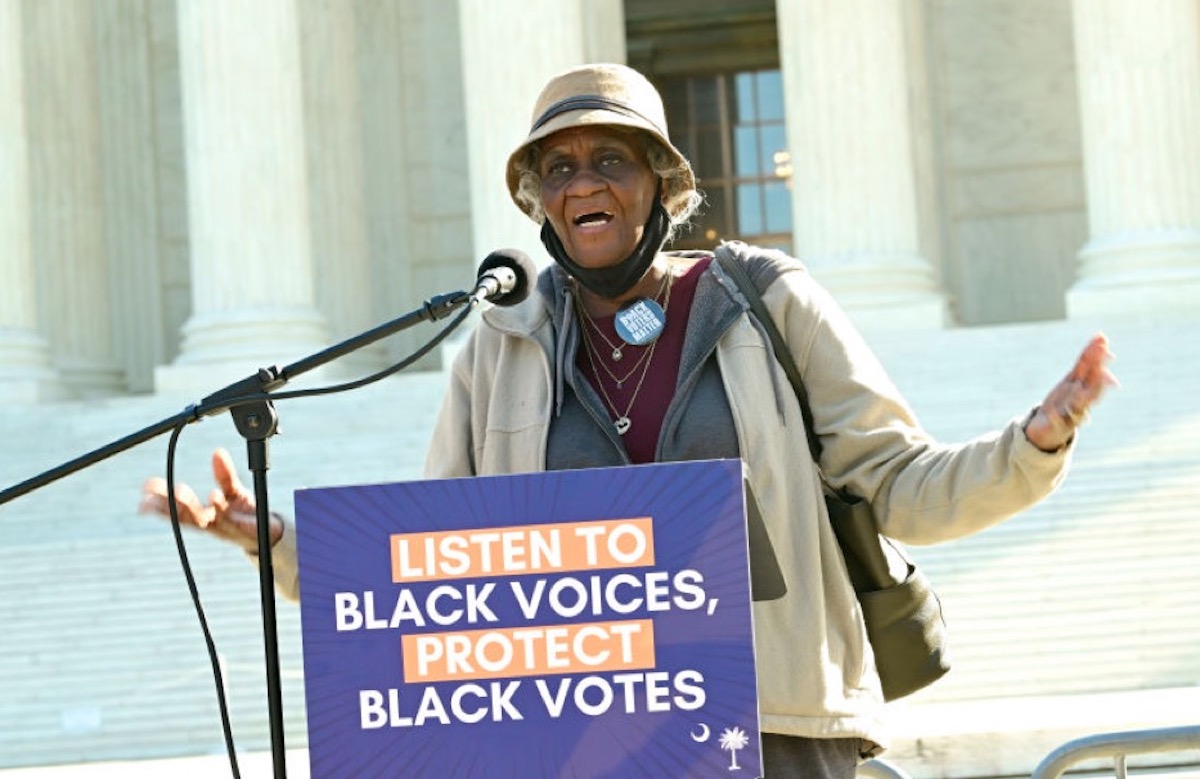The Supreme Court Seems Eager To Uphold South Carolina’s Racist Gerrymandering
Racism masquerading as ... partisanship?

I don’t have faith in the U.S. Supreme Court to do anything right these days. Minus the three women justices appointed by President Obama and President Biden combined, the judges who currently sit on the court are wildly conservative. Sure, Justice Roberts and Justice Grosuch have surprised us here and there, but overall the court has had some truly awful views, leading to awful decisions. With some of the transcript from South Carolina’s racist gerrymandering case, it looks like things will not go as we would like.
The questions are surrounding Alexander v. South Carolina State Conference of the NAACP, which is about drawing congressional lines. A three-person federal district court initially ruled that the state legislature unconstitutionally manipulated racial demographics when they drew the lines for the 1st Congressional District, intentionally creating a Republican district in the popular Charleston area of the state. The district panel believed that there was a 14th Amendment equal protection violation, which prohibits the “predominance” of race in decisions of where to draw congressional district lines. In this area, white voters were moved into the district and Black voters were largely moved out of it with the way the lines were drawn.
Conservative justices seem like they will take the side of South Carolina. Chief Justice Roberts, during arguments, lamented that there was no evidence of what was being alleged. He said there was no map, no strangely configured districts, and that everything was basically circumstantial.
Republicans want hard, direct evidence that race was used as the basis for where to draw the district lines. (Now they care about evidence?) The liberal justices explained during arguments that precedents do not actually require such direct racial evidence. They cited the 2017 case Cooper v. Harris, where the court ruled that plaintiffs could provide direct evidence, circumstantial evidence, OR a mixture of both in arguing racially gerrymandered cases. Justice Sotomayor brought up “smoking-gun” evidence, which conservatives suddenly feel they need to rule that racism was involved. But she said that this is not the case according to Cooper.
The district panel utilized different things when making their decision. They used logic by claiming that South Carolina could not have created the balance of Black voters in the congressional district needed to make it mostly Republican without using race as a factor. They also analyzed testimony from lawmakers and map drawers, but conservatives are saying that political partisanship has to be taken into account, too.
What is largely at play here is the idea of partisanship as a whole because partisan gerrymandering was “greenlit” in the 2019 decision, Rucho v. Common Cause. In Rucho, the court ruled that the Constitution has nothing to say about partisan gerrymandering and, therefore, such cases can’t be judged in federal courts, so it’s all good! South Carolina is arguing that they were simply engaging in political partisanship when they were making the congressional lines. Conservatives have said that it is impossible to separate race from politics, especially in a place like South Carolina. Justice Alito backed this viewpoint, saying that the two couldn’t be disentangled.
So … instead of saying, “If race can’t be separated from partisan politics, we can’t allow partisan gerrymandering because it’s inherently racist,” they’re saying racism has to be allowed in congressional map drawing because the fact that they’re supposed to be allowed to draw partisan maps trumps all other concerns? Great.
The more liberal justices, as well as the plaintiffs, argued that the state didn’t even use that much political data. Instead, they checked more racial data, as the state only used one presidential election in their analyses. Justice Kagan stated that if South Carolina was just focusing on a partisan gerrymandered district, they would have looked at more than this one set of election data points. As someone who has worked on campaigns, I agree with her!
The implications here will be impactful for decades to come. Conservatives, especially in the South, can just use race to make gerrymandered districts while simply calling it partisanship-based. This issue can be a bit complex and in the weeds but definitely worth following. Since the dismantling of Jim Crow, these politicians have been shifting and coming up with varying ways to devalue the black and brown vote. As I believe and have for a while, Republicans need to cheat to win and have power. This is just another example of that.
(featured image: Shannon Finney/Getty Images for Rooted Logistics)
Have a tip we should know? tips@themarysue.com